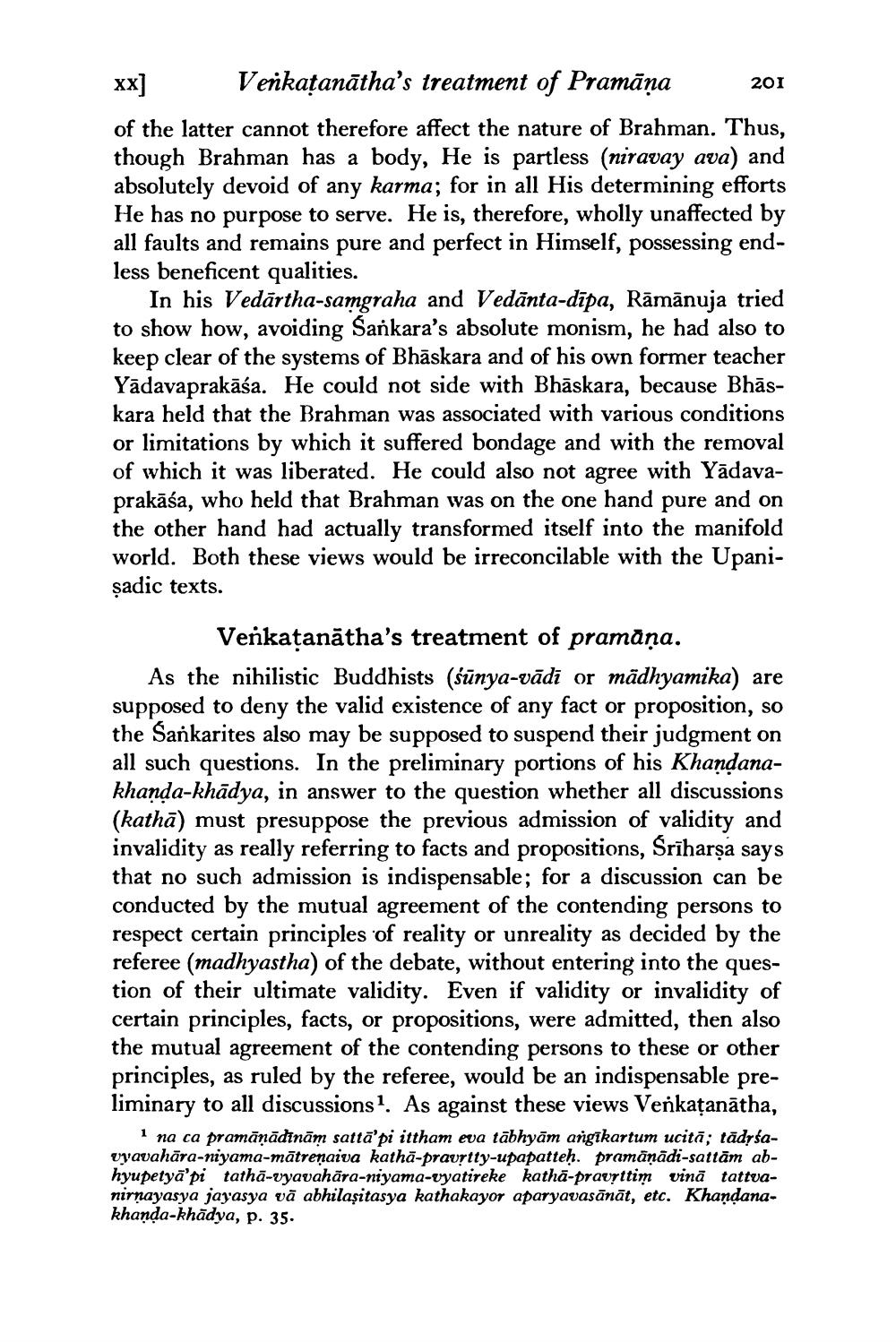________________
xx] Venkațanātha's treatment of Pramāņa 201 of the latter cannot therefore affect the nature of Brahman. Thus, though Brahman has a body, He is partless (niravay ava) and absolutely devoid of any karma; for in all His determining efforts He has no purpose to serve. He is, therefore, wholly unaffected by all faults and remains pure and perfect in Himself, possessing endless beneficent qualities.
In his Vedārtha-samgraha and Vedānta-dīpa, Rāmānuja tried to show how, avoiding Sankara's absolute monism, he had also to keep clear of the systems of Bhāskara and of his own former teacher Yādavaprakāśa. He could not side with Bhāskara, because Bhāskara held that the Brahman was associated with various conditions or limitations by which it suffered bondage and with the removal of which it was liberated. He could also not agree with Yādavaprakāśa, who held that Brahman was on the one hand pure and on the other hand had actually transformed itself into the manifold world. Both these views would be irreconcilable with the Upanisadic texts.
Venkațanātha's treatment of pramāņa. As the nihilistic Buddhists (šūnya-vādī or mādhyamika) are supposed to deny the valid existence of any fact or proposition, so the Sankarites also may be supposed to suspend their judgment on all such questions. In the preliminary portions of his Khandanakhanda-khādya, in answer to the question whether all discussions (kathā) must presuppose the previous admission of validity and invalidity as really referring to facts and propositions, Sriharsa says that no such admission is indispensable; for a discussion can be conducted by the mutual agreement of the contending persons to respect certain principles of reality or unreality as decided by the referee (madhyastha) of the debate, without entering into the question of their ultimate validity. Even if validity or invalidity of certain principles, facts, or propositions, were admitted, then also the mutual agreement of the contending persons to these or other principles, as ruled by the referee, would be an indispensable preliminary to all discussions1. As against these views Venkațanātha,
1 na ca pramāņādinām sattā'pi ittham eva tābhyām angīkartum ucitā; tādrśavyavahāra-niyama-mātrenaiva kathā-praurtty-upapatteh. pramānādi-sattām abhyupetyā'pi tathā-vyavahāra-niyama-vyatireke kathā-pravrttim vină tattuanirnayasya jayasya vā abhilaşitasya kathakayor aparyavasānāt, etc. Khandanakhanda-khădya, p. 35.




